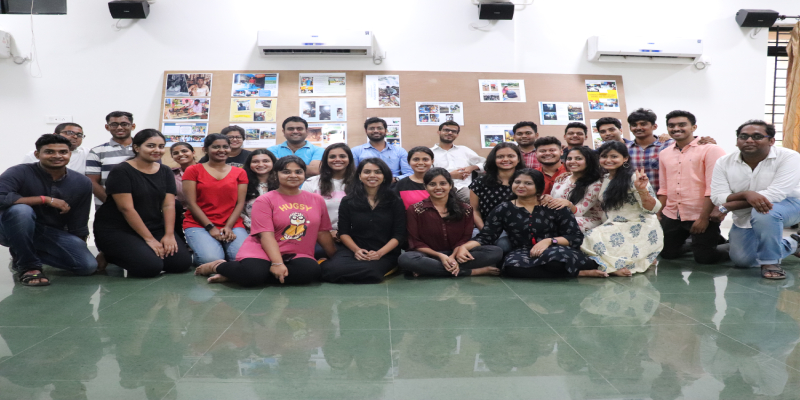Students and faculty members of Xavier Centre of Urban Management and Governance took part in a workshop cum studio on Participatory District Planning from 15-19 March 2018. The workshop was organized by Deutsche Gesellschaft für Internationale Zusammenarbeit (GIZ) GmbH and also involved students and faculty members of CEPT University, Ahmedabad.
Day 1: 15 March 2018
The Studio started with a welcome note by the hosts Kajri Mishra and Mayank Dubey from Xavier Centre of Urban Management and Governance, Xavier University, and additional words of welcome by Felix Knopf and Georg Jahnsen, Deutsche Gesellschaft für Internationale Zusammenarbeit (GIZ) GmbH. An introduction to the topic of territorial spatial planning and the idea of spatial district planning was then given by Mr Georg Jahnsen, Project Director of the Land Use Planning and Management project. The presentation was enriched with international examples from Germany, India and Africa. Mr Jahnsen highlighted the importance of abstraction and focus on a few categories of land use on a regional level, which does not allow to be too detailed. Ms Kajri Mishra strongly supports this point and states the need to focus on a few aspects of land use for the exercise.
After that, four working groups of the same size were formed, each with an equal distribution of university and gender. The day ended late with preparation of satellite maps, baseline material for the assessment and understanding the current situation.
Day 2: 16 March 2018
On day two, the participants made a field trip to Hinjilicut Municipality, Ganjam District to meet with the district officials. Subsequently, the four groups went around the areas to do a broad-brush assessment of the current land use and spatial planning of each of their assigned areas. Each group was accompanied by a mentor to guide them with the questions that they had to ask, data that was required for the workshop, and make a reconnaissance survey of the existing spatial condition.
Day 3: 17 March 2018
On day three the groups presented their field visit story and learnings from discussions with villagers, village administrators, municipality officers and district level officers. A spatial analysis of the respective area was prepared, complemented with statistical data such as figures of land cover, economic structure and livelihood.
Day 4: 18 March 2019
A presentation by Prof. Saswat Bandyopadhyay (CEPT University) on planning practices in India at different levels of administration marked the beginning of the day. Subsequently, a group was formed with one representative of each of the working groups to develop a broad story for the final presentation. The aim was to achieve coherence of the four working groups in terms of form (scale, categories, colors, etc.) and content as well as to prepare a good sequence of the presentation for the following day. Some proposals of the working groups had an influence on the plans of other levels, which had to be adjusted accordingly. All working groups made new plans according to the default standards given by the tutors.
Day 5: 19 March 2020
On the final day of the workshop the students were asked to present the outcomes of the Studio before the District Magistrate and other stakeholders at Ganjam District Headquarter, Chattrapur. After the welcoming by the District Magistrate and a short introduction by Felix Knopf (GIZ), the working groups presented their findings and proposals in the order from village to town and district level. All proposals were later pinned on a board called the “pool of ideas” which was left with the district authority. The works of students were largely appraised by the District Magistrate and other stakeholders, and further suggestions were desired to be applied through the GIZ-LUPM project.

